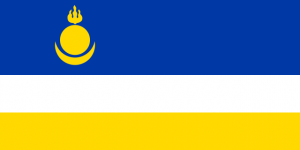Difference between revisions of "Language/China-buriat/Grammar/Adjectives"
m (Quick edit) |
m (Quick edit) |
||
| Line 55: | Line 55: | ||
<hr>If you have any questions, please ask them in the comments section below.<br>Feel free to edit this wiki page if you think it can be improved. 😎 | <hr>If you have any questions, please ask them in the comments section below.<br>Feel free to edit this wiki page if you think it can be improved. 😎 | ||
==Related Lessons== | |||
* [[Language/China-buriat/Grammar/Conditional-Mood|Conditional Mood]] | |||
* [[Language/China-buriat/Grammar/Negation|Negation]] | |||
* [[Language/China-buriat/Grammar/Questions|Questions]] | |||
* [[Language/China-buriat/Grammar/Plurals|Plurals]] | |||
* [[Language/China-buriat/Grammar/Pronouns|Pronouns]] | |||
* [[Language/China-buriat/Grammar/Future-Tense|Future Tense]] | |||
{{China-buriat-Page-Bottom}} | {{China-buriat-Page-Bottom}} | ||
Revision as of 23:06, 25 February 2023
Hi China Buriat learners! 😊
In today's lesson, we will be discussing adjectives in the China Buriat language. Adjectives are words that describe or modify nouns and pronouns. They can be used to give more information about a person, place, thing, or idea.
Adjective Formation
Adjectives in China Buriat are formed by adding suffixes to nouns. The suffixes vary depending on the gender and number of the noun.
Masculine Singular
For masculine singular nouns, the suffix -i is added. For example, the word for "man" is адам, and the adjective form is адами.
Feminine Singular
For feminine singular nouns, the suffix -a is added. For example, the word for "woman" is айым, and the adjective form is айыма.
Masculine Plural
For masculine plural nouns, the suffix -u is added. For example, the word for "men" is адамдар, and the adjective form is адамдару.
Feminine Plural
For feminine plural nouns, the suffix -e is added. For example, the word for "women" is айымдар, and the adjective form is айымдаре.
Adjective Agreement
Adjectives must agree with the nouns they modify in gender and number. For example, if the noun is masculine singular, then the adjective must also be masculine singular.
For example:
- Адам бала - The man is good (masculine singular)
- Айым бала - The woman is good (feminine singular)
- Адамдар бала - The men are good (masculine plural)
- Айымдар бала - The women are good (feminine plural)
Adjective Position
Adjectives usually come after the noun they modify. For example:
- Адам бала - The good man
- Айым бала - The good woman
- Адамдар бала - The good men
- Айымдар бала - The good women
However, there are some exceptions to this rule. For example, when using the verb "to be", the adjective usually comes before the noun. For example:
- Бала адам - The man is good
- Бала айым - The woman is good
- Бала адамдар - The men are good
- Бала айымдар - The women are good
If you have any questions, please ask them in the comments section below.
Feel free to edit this wiki page if you think it can be improved. 😎
